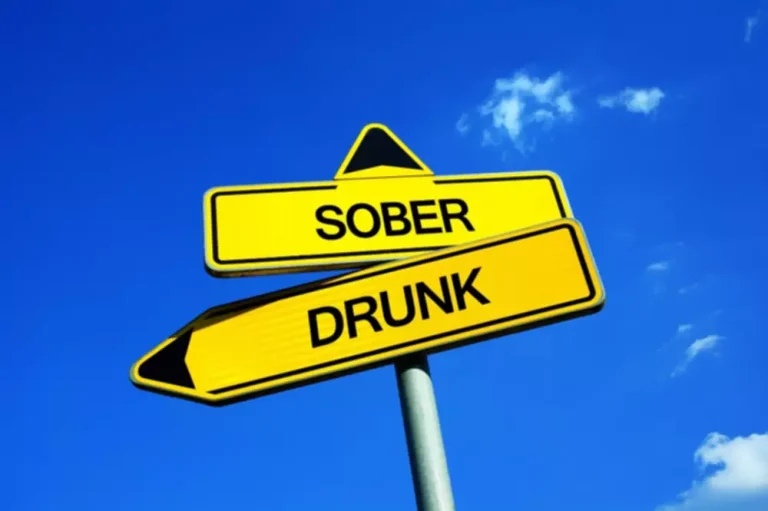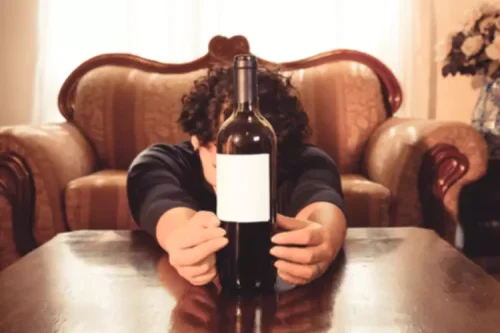
Along with this, alcohol’s harm to others, including children, can also be supposed to increase. In order to prevent the problems for children caused by parents’ alcohol abuse, it is important to target interventions to the whole population. When an alcohol addiction alcoholic parents effects on child is the cause of an ACE, there are specific outcomes that are present throughout adulthood. Adult children of alcoholics are four times more likely to choose a partner with a SUD. They also have an increased risk of becoming addicted to drugs or alcohol themselves.

Mental and behavioural disorders in children

Alcohol use may harm not only the individual drinker but also the lives of their partners, families, friends, work colleagues and their communities. While the global burden of disease estimates all deaths and disability adjusted life years lost, it may underestimate the aggregate harms caused by alcohol use, as it does not comprehensively measure all of the harms to others [1]. Moreover, most of the literature on the negative effects of alcohol use has focused on the direct harms to drinkers’ health and, thus, much less emphasis has been placed on measuring the harms to families and the wider social costs of alcohol use. However, there is a growing interest in measuring these harms to others or ‘externalities’ or ‘collateral damage’, or ‘second‐hand’ effects of alcohol use [2, 3, 4, 5, 6, 7, 8].
Seeking Healing and Support

They’ll see other options and learn that it is possible to experience healthy, positive emotions. The family belonged to a community that treated the leader as a king. I’ll bite and be devil’s advocate.Why would it be ok to correct other posts but not this one? Yes the topic is severe, but should it be treated as less worthy of a text by not pointing out errors?
- Seeking support from others who’ve been in your shoes is extremely helpful during the healing process.
- Living with the mother was not related to children’s risk for any of the studied categories of disorders, but living with the father decreased the risk of all categories of disorders.
- Children who grow up with at least one parent with alcohol use disorder can have an increased chance of experiencing negative health and behavioral outcomes.
- They rely on their parents to meet the majority of their needs.
- However, other adults can certainly step in to encourage the parent to seek treatment.
- Studies have shown that 61% of adults have at least one ACE, and one out of six has at least four.
Children of Alcoholics
There are many resources for parents and children who are in your situation. Seeking treatment for an alcohol use disorder helps you take charge of your health and wellbeing as well as that of your child. It’s important that your unique parenting and personal needs are adequately addressed so that you can focus on your treatment. Many women with substance abuse issues also have co-occurring disorders such as depression or PTSD, so treatment should address these issues as well. Two authors (P. K. and L. F.) extracted relevant characteristics (participants, exposure, study design, outcomes) of all the included studies using a structured data collection tool.
This may be due to how normalized drugs and alcohol are in their home or because the child views them as a coping mechanism for their home life. Children who grow up with alcoholic parents are four times more likely to develop a substance abuse problem than children who did not grow up in an alcoholic household. It is also important to focus on possible buffering factors that protect the child from the adverse effects of parental alcohol abuse. Our study extends the existing literature, suggesting important links between parental alcohol abuse and harm to children. The positive association between parental alcohol abuse and mental and behavioural disorders in children corresponds with the results of previous studies on this topic [2–4]. Parents with alcohol problems were identified using the Care Register for Health Care, the Care Register for Social Welfare, the Prescription Register, the Causes of Death Statistics and the Register of Congenital Malformations (for mothers only).
- The ACA has group meetings (based on the 12-step principles of “Alcoholics Anonymous”) that are specifically designed to help adult children overcome the lasting damage of parental drinking.
- There are so many things that alcoholic families don’t talk about – to each other and especially to the outside world.
- Surgeon General recommends that people who are pregnant, might be pregnant, or are planning a pregnancy not drink alcohol at all.
- However, there are ways to reach out and help children of alcoholics.
- My cousin had a kid, poor little guy, and she just gave him a screen all the damn time.
What Adulthood Is Like for Children of Alcoholics
This study findings had shown higher rate of anxiety and depression among COA compared with non-COA and higher rate of low self-esteem was found in COA compared with non-COA. These problems will go unnoticed by parents and teacher, which results in complications during childhood and even in https://ecosoberhouse.com/ early adulthood, so early identification by health care team is very important for prevention of complications. Further research is needed to identify effective strategies for using primary care for recognizing, diagnosing, and treating mental health problems in children and adolescents.
Both authors agreed to include 326 records as potentially relevant studies and retrieved their full texts. Once again, the same two authors (P. K. and L. F.) independently examined the full texts to assess their eligibility against the screening criteria. The third author (J. M.) assessed any papers where there was any uncertainty about inclusion. You can always encourage them to get their own help, but you don’t need to feel shame for taking care of your own mental and physical needs. Speaking to another person about an already complex topic can feel scary, especially if your parent has asked you to keep things under wraps. However, finding a safe adult to confide in can make a difference, and provide the support that both you and your parent could benefit from.
Alcohol Use in Families: Impact on Adult Children
- If parents fail to get kids to reach the educational milestones etc they are not allowed to homeschool anymore.
- Obviously everyone will have his or her own personal experience, but there are some common effects of being a COA.
- Children from alcoholic households carry their experiences with them for the rest of their lives.
- The children’s stories also demonstrated competence, in which they employed effective strategies to cope with the myriad of challenges wreaked by their parent’s alcoholism.
- When you feel unworthy, you cant love yourself and you cant let others love you either.
For clinicians, researchers suggested that while medical intervention is not common, incorporating practices like screen and psychosocial treatments could assist adults and lower the rates of AUD. Because there was a positive correlation between the tested areas with high rates of AUD and those with negative socioeconomic factors, researchers also suggested increased support of these parts of the community. If you have experienced this situation as a child and you wonder if your feelings are normal, it’s likely that there are many others in your shoes.

Although assuming this type of family role at a young age can be a lot of pressure, some positive character traits can develop. These effects include resilience, empathy, responsibility, and determination. In the US, there are 11 million children under the age of 18 living with at least one alcoholic parent. When a parent is preoccupied with maintaining their dependency on alcohol, they often do not meet their child’s basic needs.
